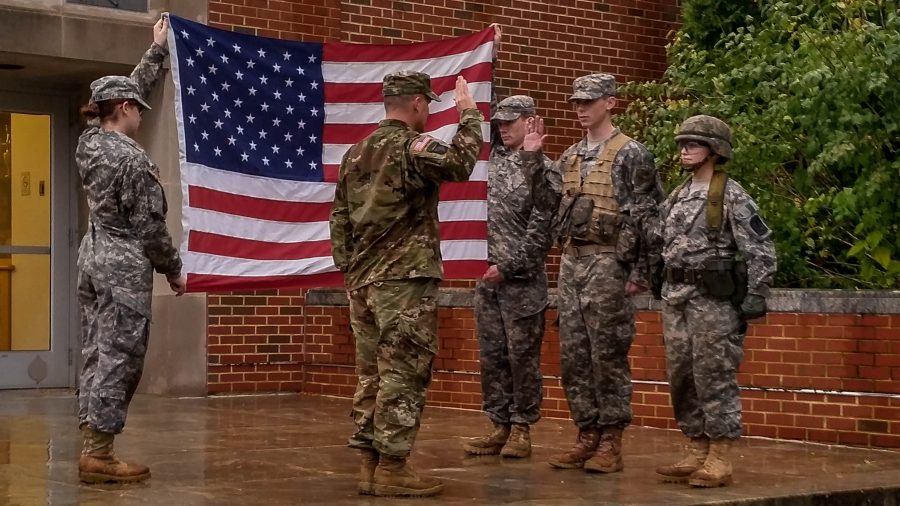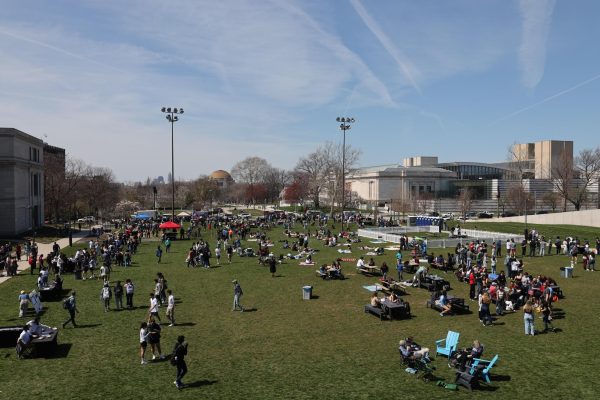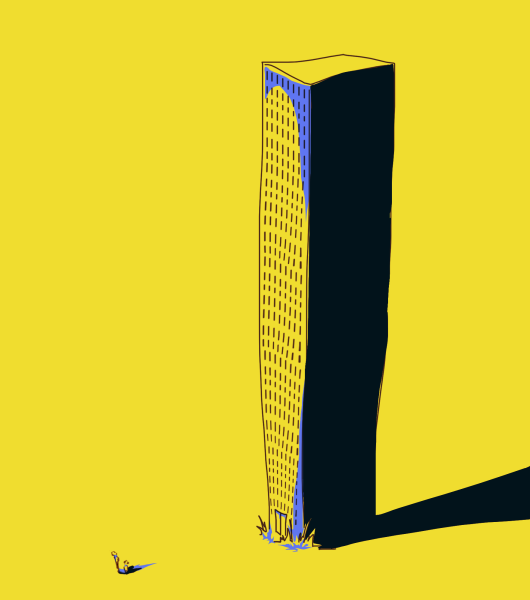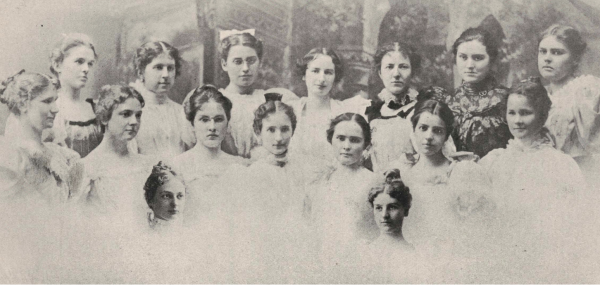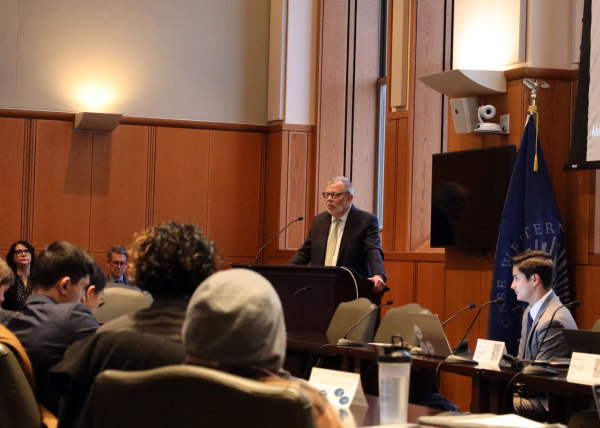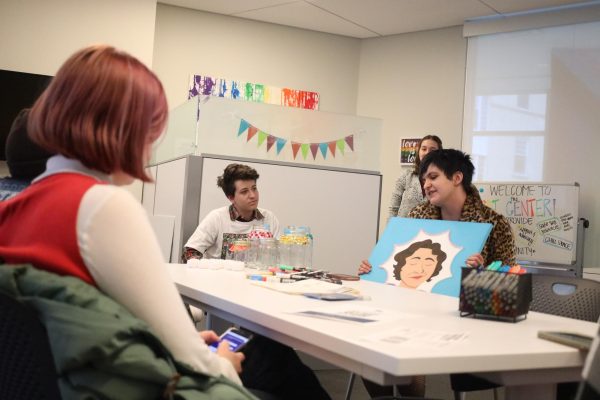Army program for college students trains future officers with leadership labs
Courtesy of Cleveland Army ROTC Program
The Army Reserve Officer Training Corps (Army ROTC) is a program under the U.S. army that provides college students with scholarships and gives them opportunities to develop leadership skills. It’s Cleveland branch is recruiting students from CWRU and other nearby universities.
October 28, 2016
The Army Reserve Officer Training Corps (Army ROTC) is a program under the United States army that provides college students with scholarships and gives them opportunities to develop strong leadership skills, with the goal of commissioning them as army officers. On Oct. 20, the Army ROTC program in Cleveland hosted the first of its leadership lab series this year, giving its audience hands-on experience in developing decision-making skills.
The Army ROTC program in Cleveland is available to CWRU students through its cooperation with John Carroll University. Students in the program are required to take a special elective curriculum along with their regular college classes. When they graduate, they are commissioned as officers, either as active-duty members of the U.S. Army or on reserve with the Army Reserve or the National Guard. Because of this particular career path, classes and practical training in the program focus on military skills, officer professionalism, leadership training and management techniques and procedures.
The skill training lab held on Oct. 20 was about tactical decision making, with small unit patrols and quick response scenarios. The lab started at 6 a.m. in the morning before sunrise. Lab participants were divided into different squads and assigned different missions. One of the missions was called “Movement to Contact,” which required participants to maintain contact with their enemy while advancing toward the designated ambush area. Participants needed to figure out their situation and respond quickly to any enemy they encountered. While at risk of being attacked by people coming out of nowhere, students were expected to react to emergency situations.
According to Second Lieutenant Theodore Zoodsma, an outreach and recruitment officer in the Cleveland Army ROTC program, the purposes of this tactical decision-making lab is to teach students tactical competency and basic military skills. It is also a way to evaluate students’ ability to handle pressure and to think when they are under great stress. He also believed such a lab would cultivate teamwork, since individuals in each squad need to cooperate with each other to accomplish the same goal.
There will be more labs coming up in the next few months. Future lab topics include military operations in urban terrain and first aid. The next lab, which talks about military operation in an urban setting, will show how to cross a city and how to clear buildings. “Glass houses,” which are made of sticks forming the outline of buildings, will be erected and students are supposed to walk through the buildings and clear out the area. By doing the operation in the “glass house,” students can learn from each other, and instructors will have a better chance to evaluate the students.
Both the Army ROTC curriculum and scholarships are open to all college students. Students who are interested in joining can take 100 and 200 level courses during the first year in college without commitment.
As part of its recruitment campaign, the ROTC program will be tabling every Tuesday in the Quad to raise awareness of the program and make information more accessible to students.
“The main goal of ROTC is to develop leadership skills among students with the purpose of commissioning them as officers in the United States Army and the Ohio National Guard when they graduate.” said Zoodsma. By having a series of labs and increasing the recruitment campaign on campus, Zoodsma hopes that there will be more students joining the ROTC program and developing their leadership and self-management skills.








